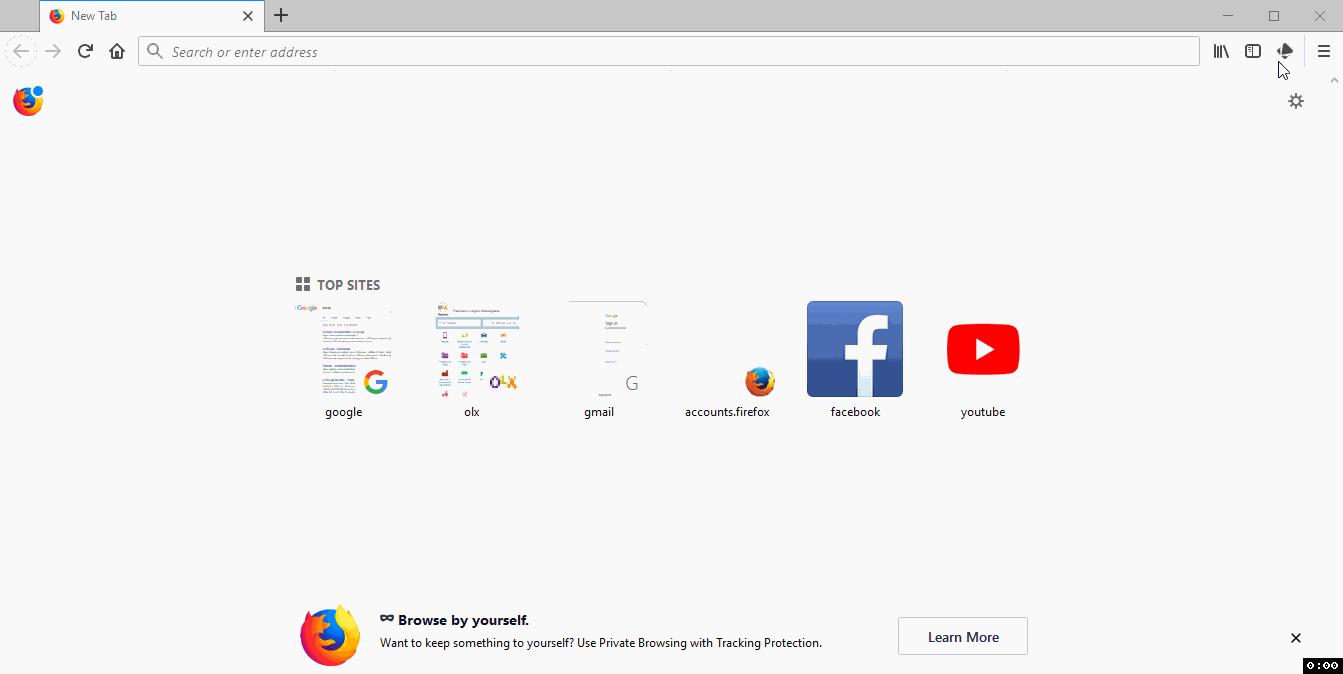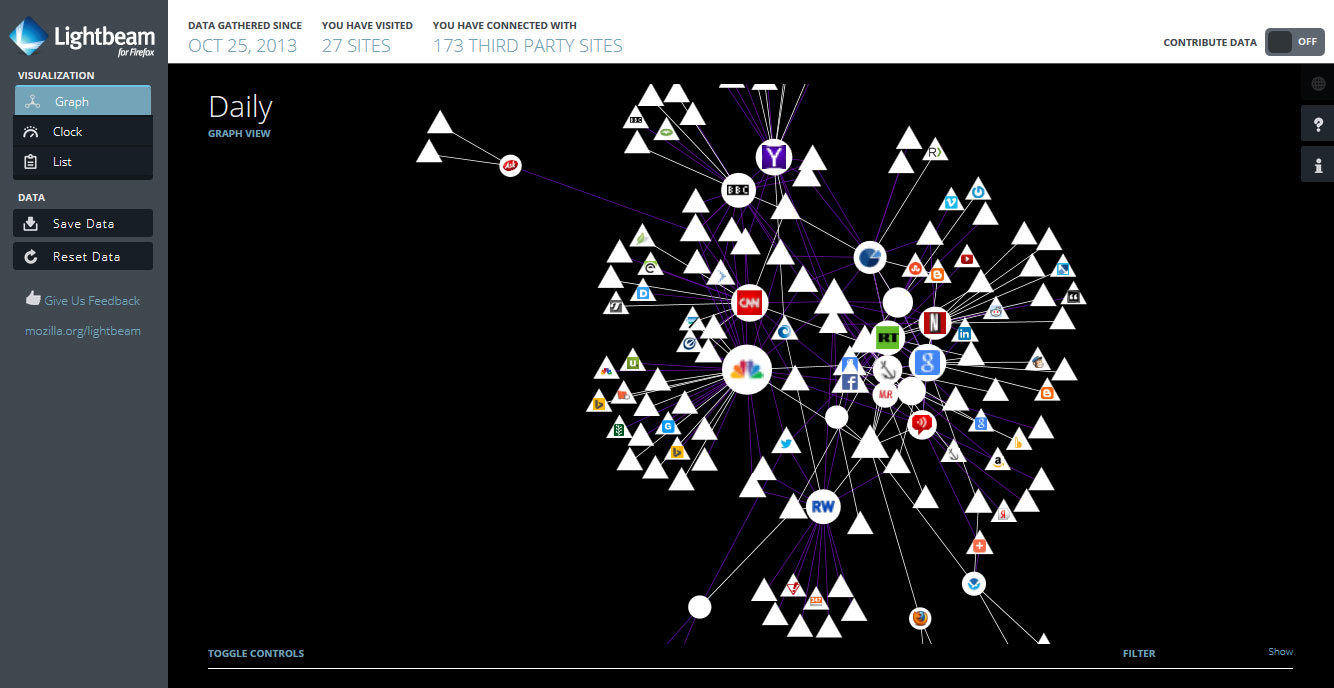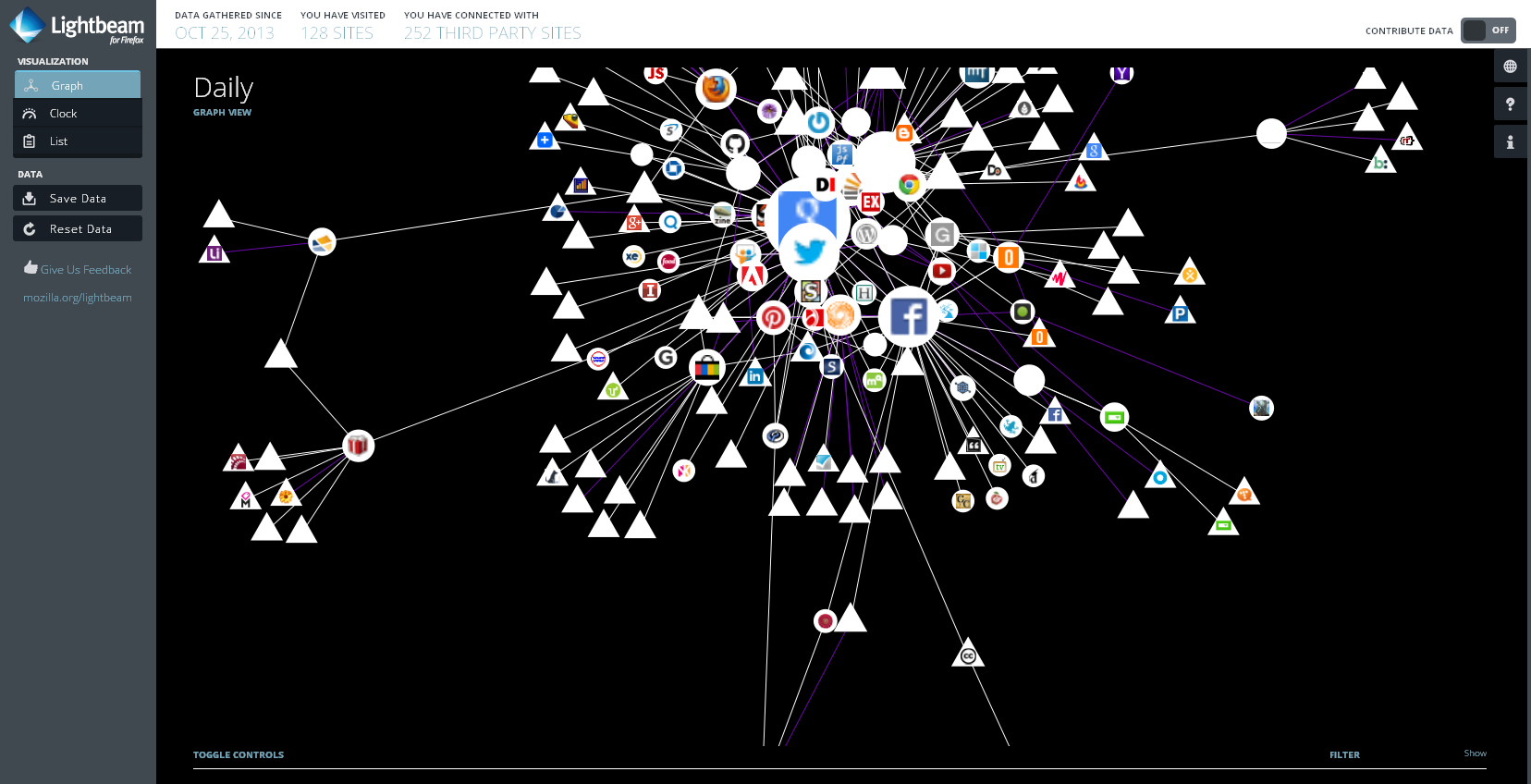Data Misuse
What happens to our data after being collected?
Targeted Advertising
Advertisers are interested in tracking us - watching your browsing habits helps them predict what you are most likely to buy next!
Try searching "car accident" on Google; it will probably give you a few ads for lawyers. If you search for "car accident lawyer", you will get plenty of in-your-face ads for lawyers, with some that even know your approximate location.
Here's how tracking with cookies works, step-by-step:
- You visit a website which is selling data to an advertising company.
Since this is the first time the advertising company has seen you, they generate a random unique identifier for you, and place it into your browser's cookies.
- Next, you visit any other website working with the advertising company.
Now, they will be able to retrieve that unique identifier from the browser's cookies and report a message back to themselves, which says that the person with this unique identifier is browsing this website at this time.
- Slowly, advertisers will be able to build a decent profile on your browsing habits.
Let's look at Firefox Lightbeam

Firefox Lightbeam lets you explore how websites are using cookies to share information
- Every icon is a website
- Every triangle connected to a websites is a cookie that a website is storing
- If a cookie is connected to multiple websites, then those connected websites are sharing information
After visiting just a couple of websites, we can already see that plenty are sharing cookies to track our browsing habits (what we've been searching, where we've been visiting, etc.):

And once you've been browsing for a while, there are just so many connections that everything gets confusing:

We can see that there's plenty of tracking happening across the internet.
Most online tracking is from advertisers, who collect your data to make more money by targeting their ads at you.
They know what you're interested in, and thus know which ads you'll click on and buy things from, based on the info they've collected.
But advertisers aren't the only ones interested in your data; governments also collect data with the intent to improve national security.
The Snowden Leaks
In 2013, Edward Snowden was working for the NSA as a contractor through Booz Allen Hamilton.
While working, Snowden observed and became increasingly concerned with the government's mass surveillance programs. He considered them to be government overstep, especially considering that the public had no idea about them.
As a systems administrator, he had privileged access and was able to pull confidential documents virtually untraced.
So, he made the decision that he would leak documents on the many government surveillance programs to let the public be aware.
Here are the biggest revelations from the documents Snowden leaked:

This ThingLink is a visualization of the compilation provided by Lorenzo Franceschi-Bicchierai at Mashable
How can surveillance in the name of national security be a threat to me?
Should I be concerned?
You can see the full interview with The Guardian